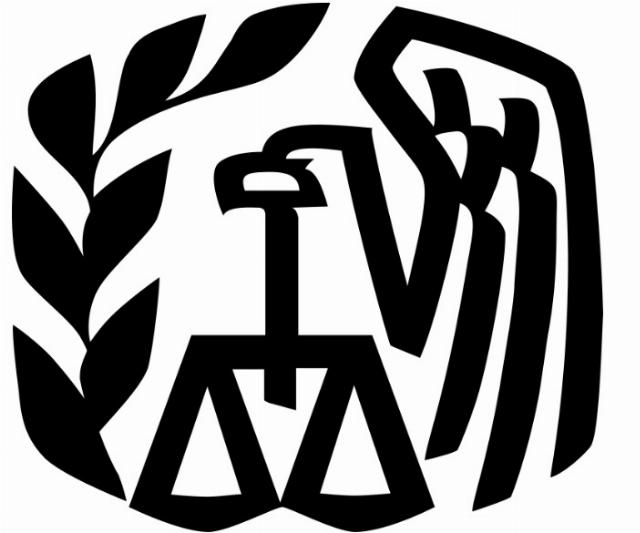Auditing the IRS: A Step Towards Tax Reform
Americans are justifiably outraged and disgusted with the recent revelations of how our tax dollars have been wasted through various agencies. Our new EPA chief Lee Zeldin compared the waste in his agency to "throwing gold bars off the deck of the Titanic".
During his campaign, Pres. Trump repeatedly vowed to go through the federal budget line by line to eliminate waste and fraud. This was well received by voters. Unsurprisingly, a majority of 'X' users recently voted for DOGE to investigate the IRS, the most uniformly-hated agency in America.
We're about to get our wish. With the news that DOGE will be auditing the IRS for waste, corruption, and fraud, the Left has responded with their usual hyperbolic fury. When you're investigating corruption and fraud and people tell you to stop, it's very likely you've found the corrupt people committing the fraud.
Said President Trump (I love writing that!), "The IRS will be looked at like everybody else."
It's about time. Americans have long been forced to rely on professional accountants or commercial software in order to prepare their annual income tax returns. Errors on these returns may result in costly audits and legal penalties. If you're looking for guidance from the tax code itself, be prepared to wade through 75,000 pages of regulations.
In The Federalist No. 62, James Madison wrote,
"It will be of little avail to the people that the laws are made by men of their own choice, if the laws be so voluminous that they cannot be read, or so incoherent that they cannot be understood; if they be repealed or revised before they are promulged, or undergo such incessant changes that no man who knows what the law is today can guess what it will be tomorrow. Law is defined to be a rule of action; but how can that be a rule, which is little known and less fixed?"
This is the government our Founders warned us about. How many of those  regulations are special exemptions, written in at the behest of lobbyists and other special interest groups in exchange for benefits returned to those in Congress who wrote the bill?
regulations are special exemptions, written in at the behest of lobbyists and other special interest groups in exchange for benefits returned to those in Congress who wrote the bill?
Not only is it long past time for the IRS to be audited, it's also long past time for a national discussion on replacing the current federal income tax code with an alternative such as a Flat Tax or a National Sales Tax, AKA the "Fair Tax." There are benefits and drawbacks to both, but either one might be preferable to what we have now.
In brief, a Flat Tax is a single tax rate applied to all income above a certain threshold. That threshold protects those in low-income brackets. Citizens above the threshold would all pay the same rate, reducing administrative costs and complexity. Beyond its simplicity, a welcome by-product of this option would be an end to the incessant complaints of those who claim the rich aren't paying their fair share. They never define what they mean by "fair share," by the way.
Another advantage is that it might encourage people to spend and invest, thereby boosting economic activity and income generation. Those touting this option suggest a rate in the neighborhood of 20%.
In contrast, a National Sales Tax or "Fair Tax" would tax consumption rather than income. All purchases would be subjected to a federal sales tax at the point of sale. It would require a new infrastructure for collecting taxes as well as greater involvement from those states already collecting sales taxes.
Since it taxes consumption, the Fair Tax might disproportionately affect those in lower-income brackets who tend to spend more on goods and services. This regressive effect could be mitigated with rebates based on income (prebates) or exempting certain items such as food and clothing from the tax.
One danger of the introduction of this new Fair Tax infrastructure might be the adoption of a Central Bank Digital Currency that would replace coins and paper bills. Such a move would involve computer algorithms and bureaucrats being placed in supervisory positions over consumer purchases. We see this being utilized in China, where social credit scores are applied to their citizens which can subsequently be used to approve or disapprove individual purchases. Chinese citizens who run afoul of the government can find restrictions on such things as their access to healthcare and purchases of airline or train tickets, or they may be denied bank loans or face higher interest rates on credit cards.
Any changes to the current federal income tax model would require congressional action. The 16th Amendment establishing the current tax system could be repealed through the ratification of another amendment. This rarely happens, but it’s not unprecedented.
In summary, both the Flat Tax and the Fair Tax aim for simplicity and each could potentially boost economic efficiency, but they also have unique challenges regarding implementation and economic behavior. Choosing between them would largely depend on our national economic policy goals and administrative feasibility.
But can we at least start talking seriously about it?
Image: Public Domain





